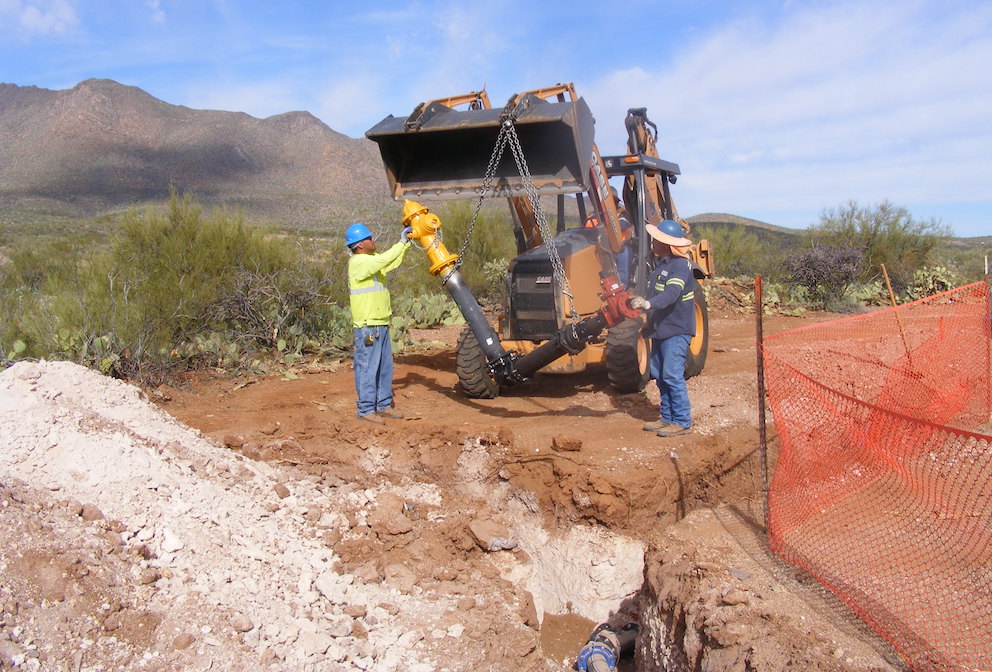
- Details
- By Tribal Business News Staff
- Policy and Law
U.S. Sens. Michael Bennet (D-Colo.), John Hickenlooper (D-Colo.) and Martin Heinrich (D-N.M.), alongside Reps. Joe Neguse (D-Colo.) and Gwen Moore (D-Wis.), introduced legislation to dramatically expand access to clean water in tribal communities by investing in water infrastructure across three federal agencies.
The Tribal Access to Clean Water Act addresses a crisis affecting half of households on Native American reservations, which lack access to reliable water sources, clean drinking water or adequate sanitation. According to the U.S. Department of Health and Human Services, Native American households are 19 times more likely than white households to lack indoor plumbing.
The bill would increase funding authorizations for the Indian Health Service by $3.15 billion over five years, including $2.5 billion for community facilities construction, $150 million for technical assistance and $500 million for operation and maintenance assistance. It would also boost USDA's Rural Development Community Facilities Grant and Loan Program by $100 million annually for five years and authorize $90 million over five years for the Bureau of Reclamation's Native American Affairs Technical Assistance Program.
In a related development, the Indian Health Service finalized its Fiscal Year 2025 allocations for the Sanitation Facilities Construction program, directing $106.6 million toward water and sanitation projects in tribal communities. The funding includes $49.8 million to address deficiencies in existing homes, $34.3 million for new or like-new homes, $1.5 million for emergency projects, and $21 million for program support tied to implementation of the Bipartisan Infrastructure Law, according to a July 24 letter from IHS Acting Director P. Benjamin Smith to tribal leaders.
While the IHS allocation offers immediate support, Bennet and other lawmakers say significantly more funding is needed to meet long-term needs and close persistent infrastructure gaps.
“Too many tribal communities in Colorado and across the country cannot access clean, safe water,” Bennet said in a statement. “This legislation builds on our efforts to improve access for tribes in the Bipartisan Infrastructure Law. It fulfills the federal government's promise to provide these communities with the clean water they deserve.”
“An estimated 48 percent of homes on tribal lands lack access to clean drinking water or sanitation services,” Moore said in a statement. “This is a serious public health issue that demands a federal response.”
Manuel Heart, chairman of the Ute Mountain Ute Tribe, said the bill addresses critical infrastructure gaps. “This bill's recognition of the need for technical support and operation and maintenance assistance for tribal water supply facilities is not only essential to realizing the benefit of investment in water infrastructure, but also a critical step toward increasing tribal independence and governance capabilities,” he said in a statement.
Anne Castle, co-founder of the initiative on Universal Access to Clean Water for Tribal Communities, linked water access to health outcomes. “Higher incidence of respiratory disease, gastrointestinal infections, diabetes and cancer are all linked to ‘water poverty,’” she said in a statement.
Bennet initially introduced the legislation in 2021 and successfully secured $3.5 billion for tribal water infrastructure in the Bipartisan Infrastructure Law. However, that funding expires in 2026, creating urgency for the new authorization.
The current bill is co-sponsored by Sens. Bernie Sanders (I-Vt.), Ron Wyden (D-Ore.), Elizabeth Warren (D-Mass.) and Alex Padilla (D-Calif.).
The legislation addresses gaps in technical assistance needed to bring water projects to “shovel ready” status and provides operation and maintenance support that tribes need to sustain water systems long-term, according to bill summaries.
